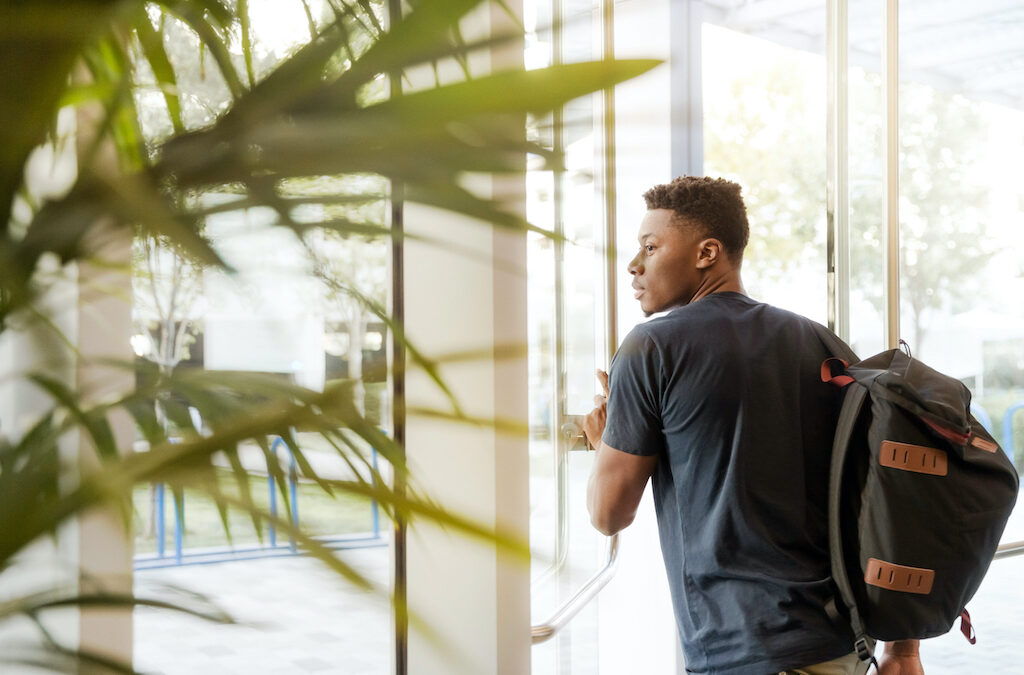When campuses were shut down and students asked to return back home, the country recorded an alarming spike in college student anxiety.
Separation from friends, loss of income, fear of catching the coronavirus, and the absence of physical and social support networks triggered and heightened feelings of worry and anxiety in college students.
Now, that the coronavirus outbreak has been somewhat contained- lockdowns and restrictions have been lifted, businesses are gradually bouncing back, and schools are kickstarting plans for resumption.
Does this mean college students are no longer anxious?
The answer is no. Surveys and reports say stress and anxiety levels have risen further.
Why might this be?
Fear of Contracting the Virus
There is still no cure for the coronavirus and certain people are still asymptomatic (i.e. they could have the virus but show no symptoms). Most colleges have put in place measures to ensure the early detection of an infected person showing mild symptoms to prevent the virus from spreading. However, none of these preventative measures are 100% fool-proof. There’s still a significant risk of students contracting the virus and spreading it. This fear and uncertainty breed feelings of anxiety in college students especially those with compromised immune systems.
Total Upheaval in Routine
Some colleges have halted physical resumption of classes and have mandated all students to resume their classes online for the foreseeable future. Some have asked students to resume physically at campuses…but this comes with a twist. Not everyone can resume at once. A rotation of students and the further division of a single term into four semesters make it possible for everyone to have a chance at physical learning.
Most schools have avoided such extremes and found a way to balance physical return with online classes. So, a student might visit the campus from time to time when necessary but will take a significant number of their classes remotely.
Whichever strategy is ultimately chosen by the school board, the truth of the matter remains that students are faced with an arrangement and learning structure previously unknown and experienced. They basically have to roll with the punches and learn how to adapt, which can cause an increase in anxiety.
Remote Learning Difficulties
Remote learning might sound good in theory, but practically, it can be difficult for some students. Connectivity issues and the lack of physical interaction with the professor and other students, are just a few of the difficulties encountered by students who have to resort to remote learning. Inevitably, learning won’t run as smoothly as planned and students will begin to fret about their grades.
Lack of Social Interaction
Some students are social butterflies. They thrive on meeting new people, having engaging discussions with others, and ruling the social scene. Returning to campuses where interaction with others will be highly restricted through enforced social distancing, can come as a huge shock to their previous lifestyle and clash with what they value about the school atmosphere.
Difficulties in adapting to this new and sudden change can be a major contributing factor to college student anxiety.
How College Students Can Cope with Campus-Return Anxiety
If you are anxious about resuming your studies via remote learning or returning to campus after the coronavirus outbreak and subsequent lockdown,
- Accept that you’re anxious and stressed and that it’s okay to feel that way. Don’t reject or hide your feelings. Own them. It makes sense to be worried about stepping into a world that has greatly changed.
- Speak with someone. It could be a trusted friend or relative. Talk about your feelings. Seek encouragement and support.
- See a licensed therapist for anxiety therapy to help guide you through effectively coping. You could engage in online therapy via a secure online platform or book a physical session if restrictions have been fully lifted in your area of residence.
- Make decisions beneficial to both your physical and mental health. If your immune system is badly compromised and/or you feel you’re not mentally up to returning to school right now, then reach out to your school advisor about the possibility of having all your classes and related activities done remotely or taking time off from school.
- Practice meditation and other deep-breathing exercises to help relax your mind and center your thoughts.
Start Therapy for College Students in Baltimore, MD
College students are a unique population of people and at New Connections Counseling Center we are dedicated to assisting students with their specific challenges and hurdles. College can be overwhelming- if you are struggling please contact us today.
Other Services Offered by New Connections Counseling Center in Baltimore, MD
At New Connections, we cater to a diverse population and that is reflected in who we help. We offer services to women, men, couples, college students, and sexual assault survivors. We strive to help you find meaning and purpose during difficult life transitions. In addition to assisting a variety of populations during a variety of life’s challenging moments, we provide anxiety counseling and depression treatment. We understand life presents challenges and we are here to help you heal and grow.
Contact New Connections Counseling Center to discuss therapy for college students and anxiety counseling!






